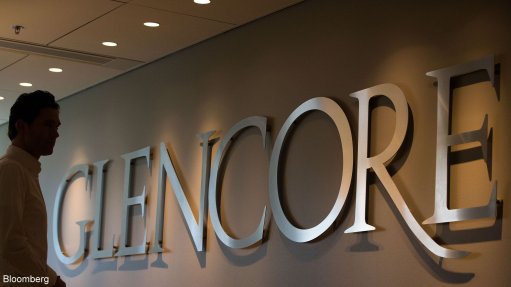
Glencore has closed the “cash desks” in London and Switzerland that once dispensed money for bribes. Employees implicated in sweeping, cross-border corruption investigations are gone. New safeguards are in place, and boss Gary Nagle says it’s a “different company.”
Now he will have to prove it.
Glencore this week agreed to plead guilty to a web of bribery and price manipulation charges that stretch from Venezuela to Nigeria and Los Angeles in deals with the US, UK and Brazil. The penalties will total about $1.5-billion but there’s a longer-lasting requirement -- the deal with the US Department of Justice (DoJ) means Glencore will spend the next three years being scrutinized by an independent monitor.
It’s a potentially seminal moment for the company founded by US fugitive Marc Rich, which has powerful trading networks in every corner of the globe and operates a sprawling suite of mines producing some of the most important commodities. Glencore’s top leadership has been overhauled in the last few years as former CEO Ivan Glasenberg and his lieutenants handed over to a younger generation, although many of the new chiefs are also longtime employees.
Glencore’s guilty pleas also come at a time when its trading business is making money like never before as the company cashes in on soaring prices and market volatility. Now Nagle, who took the helm last year, is seeking to draw a line under the history of bribery that one US attorney said was “built in to the corporate culture.”
“These investigations identified serious cases of past misconduct in parts of our business. We acknowledge this is unacceptable behavior, and I want to re-emphasize that it has no place in the Glencore of today,” Nagle said Tuesday in a letter to employees seen by Bloomberg News. “Glencore is a different company today than it was when these unacceptable practices occurred.”
The company started as early as 2016 to phase out the use of intermediaries -- the agents and dealmakers once essential to cracking the toughest markets but which can serve as arms-length facilitators for bribery and corruption. Glencore has also put in place an ethics and compliance program and said it will disclose its marketing sales and purchase agents.
The company said Tuesday that it’s expanded its surveillance of communications and transactions in its oil business and expanded risk assessment. It also said it was beefing up its third-party monitoring systems across its entire trading business.
However, the DoJ said Tuesday that many of remediation steps remain unproven and untested, necessitating an independent monitor and subjecting Glencore’s business to an unprecedented level of ongoing scrutiny. The DoJ has used monitors for more than 20 years -- they can inspect documents, interview employees and make on-site audits, and report back to both the company and the enforcement agency.
Glencore also did not always demonstrate a commitment to full cooperation during the investigation and “did not timely and appropriately remediate with respect to disciplining certain employees involved in the misconduct,” according to the plea agreement with the DoJ.
In legal documents this week, the DoJ and Commodity Futures Trading Commission describe wide-ranging bribery and corruption that reached to the senior ranks of the company. Traders would use codes like “newspapers” or “chocolates” to refer to corrupt payments, the documents say. Some of the corrupt payments were made in cash that was dispensed from Glencore offices -- the company maintained a “cash desk” in London until about 2011 and in Baar, Switzerland until about 2016, the DoJ said.
While the most senior leaders during the time covered by the investigations have since retired, many of the new department heads were at the company during the period in which the bribery and corruption was found to have taken place.
It’s also not the first time Glencore has found itself in Washington’s crosshairs -- founder Rich was indicted in 1983 in part for trading oil with sanctioned Iran, but received a controversial pardon on former President Bill Clinton’s last day in office in 2001.
In his letter to employees, Nagle said he is personally responsible as CEO for embedding the company’s values and ensuring accountability. Glencore has taken “extensive remediation actions, including through the separation or discipline of employees involved in the wrongdoing,” he said.
Alexandra Gillies, an adviser at the Natural Resource Governance Institute, said that some of the reforms that Glencore had implemented were “very meaningful” but called on Glencore to do even more and for its business partners to hold it accountable.
“Even though Glencore has improved its systems, the corruption risks in commodity trading and in the mineral sector are incredibly high right now,” she said. “I think for Glencore’s partners to say these challenges were all in the past ignores that context. It is partially their role to make sure corruption is prevented in the future.”